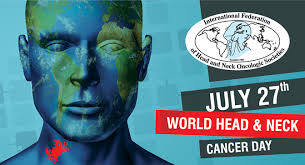
Not nice to have a head and neck cancer of any sort but those who don’t fall into the neat categories of tongue cancers, HPV-related throat cancers and larynx cancers have a harder time finding peers.
The three types of head and neck cancer mentioned above are common in my HNC support group, Head & Neck Cancer Support Aotearoa. There are also some salivary gland tumours.
Earlier this year I attended a Cancer Control Agency hui for all cancers. They wanted to find out why New Zealand’s cancer cure rate was not going up as much as it was in some other similar countries so they were going to “drill down” on common cancers like breast and bowel.
Head and neck cancer, one of the least common, doesn’t get a look in. And then, if you are uncommon within the HNC cancer type, you are even more on your own.
More common head and neck cancers have well oiled treatment protocols with good success rates. Excision of tumour, replacement with flap, removal of likely affected lymph nodes as in my tongue cancer case. Chemo and radiation for HPV-related tonsil or base of tongue cancer, maybe preceded by transoral robotic surgery. Removal of the larynx in larynx cancer cases with the provision of a tracheo oesophageal puncture or TEP which allows the patient to speak.
None of the above are easy, especially the latter. We do have clusters of patients and carers in these categories though and they can share experiences with each other. Once again there a people even within these common groups who have recurrences requiring more savage treatment but there is a commonality that patients with rare cancers don’t experience.
In our group we have had patients with adenoid cystic carcinoma, nasal and sinus cancer, invasive skin cancer and many more. We’ve had patients who have had metastatic breast cancer spread to the head and neck.
One thing about this online modern world of ours is that it’s possible to search the world over to find someone with your own rare cancer. I always think that finding a peer is one of the best ways to deal with a frightening cancer diagnosis.
On World Head and Neck Cancer Day, I think we should spare a thought for people with rare cancers.
Julie McCrossin
July 5, 2020 — 4:27 am
So true & so empathic. Thank you.
Denyse Whelan
July 5, 2020 — 4:32 am
Thank you and you are so right. Still have found “no-one” with my version of Head and neck cancer. This post and the group you helped form do acknowledge the difficulties some (all) of us encounter trying to find “another” who we might learn from or at least feel less alone.
Yvonne McClaren
July 5, 2020 — 9:56 am
apt title 🙂